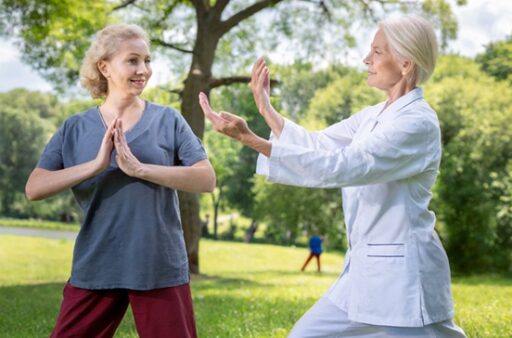Physical therapy is strongly recommended for patients with neurological disorders. Tai Chi-based treatments seem to improve physical functions like gait speed and balance. However, assessments after treatment rely on semi-quantitative clinical scales affected by subjectivity with controversial results.
A study presented by a group of Italian scientists at the 2023 Annual International Conference of the IEEE Engineering in Medicine and Biology Society aims at investigating whether Tai Chi could be a valid alternative to traditional physiotherapy rehabilitation. They propose a wearable system composed of two inertial devices able to objectively measure the effect of the rehabilitation treatment on the range of movement of the trunk.

Seventeen patients with Parkinson’s Disease (PD) were recruited and assessed. They were randomly divided into two groups: group 1 followed a Tai Chi-based treatment, while group 2 underwent a traditional physiotherapy rehabilitation. The two groups have been assessed before (t0) and after the treatment (t1). No statistical differences have been found in the relative range of motion between the upper and lower sensors between the two groups at the baseline. Both treatments resulted in a significant improvement in the trunk range of movement (on the right side).
Notably, the improvement in the effect size of the treatment was greater in the Tai Chi group than in the traditional rehab group. In fact, even if both the groups benefited from their treatment, the Tai Chi group gained larger mobility of the trunk if compared to the traditional rehab group. Interestingly, no differences have been accounted adopting the traditional UPDRS III for motor symptoms of PD, strengthening the idea that objective measurement coming from wearable biomedical sensors could detect information otherwise neglected by traditional clinical tools.
This study preliminarily confirms that beneficial motor effects after a Tai Chi rehabilitation program are comparable and quite better than after traditional physiotherapy, promoting Tai Chi as a valid alternative treatment for PD patients.